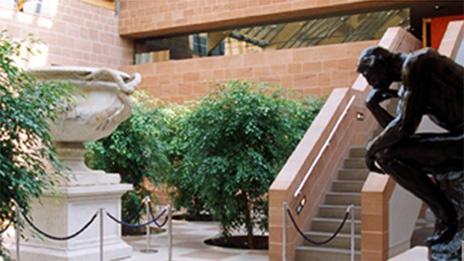Burrell Collection payment over Nazi-looted tapestry
- Published
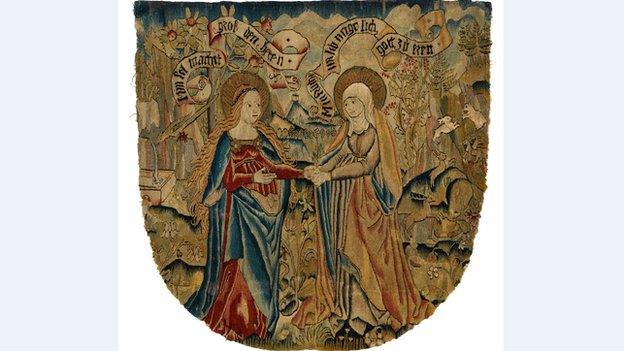
The tapestry is part of Glasgow's Burrell Collection
Compensation is to be paid to a German Jewish woman's estate after it emerged a piece of Nazi-looted artwork ended up in Glasgow's famous Burrell Collection.
The section of 16th century tapestry was owned by Emma Budge, whose estate was confiscated after her death in 1935 and sold to benefit Hitler's regime.
A claim by her estate was upheld by the UK's Spoliation Advisory Panel which looks into cases of looted artworks.
The amount of compensation due to the family is still to be decided.
The artwork at the centre of the claim is a tapestry fragment representing "The Visitation".
It depicts the pregnant Virgin Mary and Saint Elizabeth, the future mother of Saint John the Baptist.
Estate confiscated
The tapestry was made in Switzerland early in the 16th century. The fragment was cut from a larger tapestry and fashioned into the shape of an ecclesiastical cope hood.
It was acquired by Mrs Budge who, along with her husband Henry, amassed a considerable fortune after emigrating to the United States.
They returned to Hamburg where Mr Budge died in 1927. His wife died in 1935, shortly before the outbreak of the Second World War.
Mrs Budge's estate was confiscated by a Nazi official and sold at auction that same year.
The section of tapestry was acquired by Sir William Burrell in 1938.
Following his death in 1958, he left his thousands of paintings, sculptures, tapestries, ceramics and stained glass to Glasgow.
The famous collection, which is housed in a museum in Pollok Park, is controlled by the city council.
It has now agreed to pay compensation after a claim by Mrs Budge's heirs was upheld by the Spoliation Advisory Panel and it will discuss the amount at a later date.
- Published2 April 2015
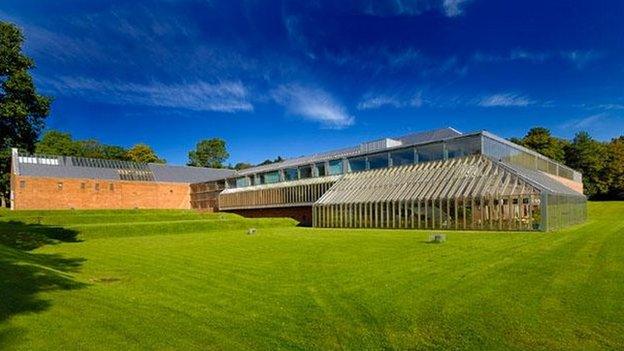
- Published20 March 2014
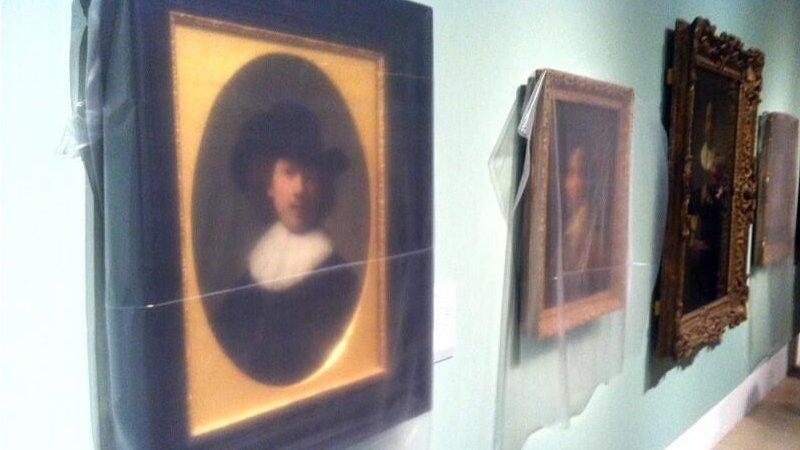
- Published21 January 2014
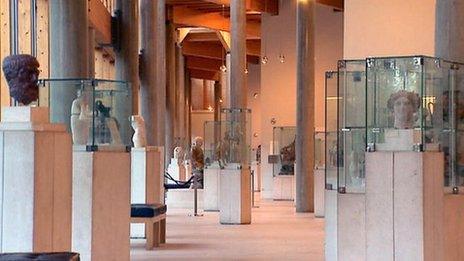
- Published29 May 2013
